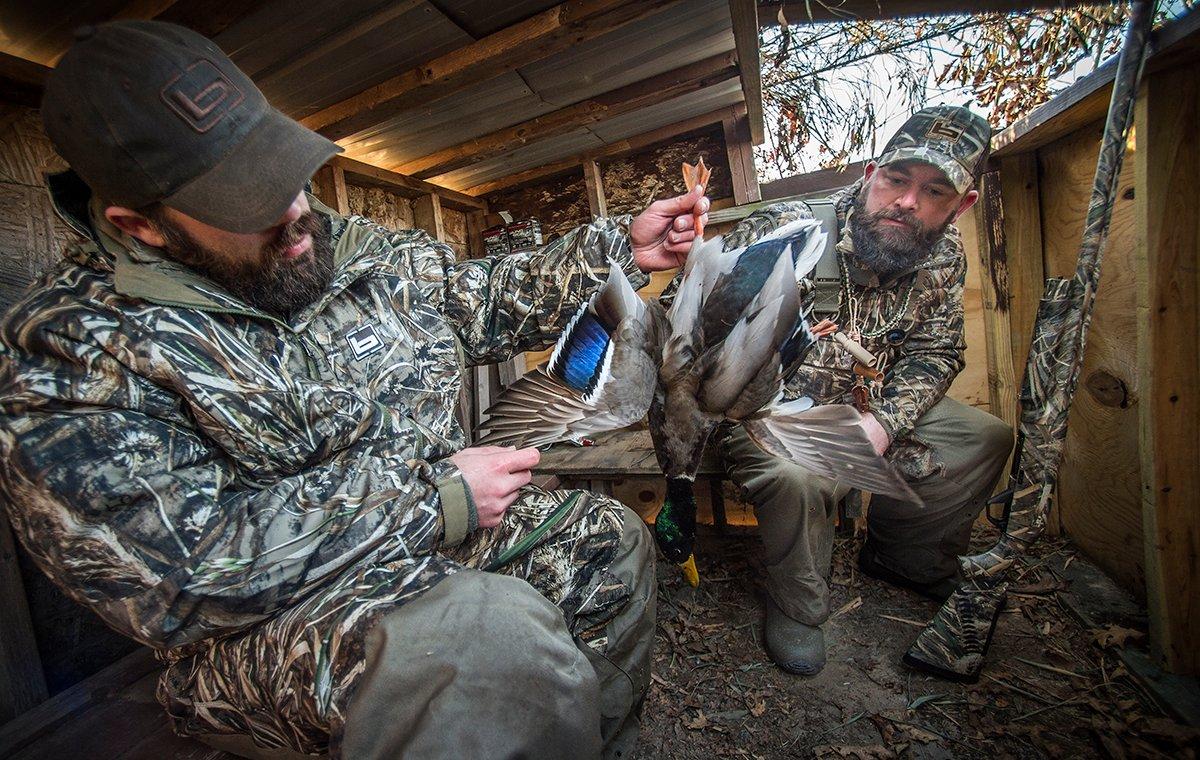Waterfowlers often stumble when relating our obsession to nonhunters
We hunters sometimes find it difficult to express the reasons behind our passion when chatting with the uninitiated. That's especially true with waterfowlers, I think.
Trite answers and easy rationales don't do us any favors, either. Two-plus decades ago, a co-worker asked me why I hunted waterfowl. Are there that many extra ducks? she said innocently.
I probably stammered before offering a string of clichés to explain my lifestyle. But the episode stuck with me, and when I started talking to my young nieces and nephews about waterfowl hunting, I knew I'd better get it right — no fluff or fairy tales. But how did I relate to youngsters and adult non-hunters that it was not only OK to hunt ducks and geese but actually beneficial to those birds long-term?
First, I tried to address the elephant in the room: the subject of killing ducks and geese. Unless you're discussing lesser snow geese or local populations of giant Canadas, waterfowl hunting is not about population control or reduction. And as many studies have shown, modern managed duck and goose hunting has little effect on bird numbers year to year. Populations typically increase or wane based on reproductive success. Sometimes, depending on the conversation, I'll get into that deeper, explaining that most waterfowl harvest falls under what biologists call compensatory mortality, which is harvest within a harvestable surplus, in which the deaths of affected animals are essentially substituted for deaths that would have occurred naturally. Harvest higher than that level is called additive mortality, because that would add to the number of deaths that would have occurred without hunting. If I'm speaking with youngsters, I skip the textbook stuff and simply say that hunter harvest has little overall impact on the long-term populations of ducks and geese, even with species of some concern, such as pintails or canvasbacks.
That's good stuff, but it still doesn't address the why. The obvious answer would be to acquire some of the best wild table fare on the planet. That rationale holds up better nowadays, especially with the growing wild-protein and farm-to-table movements. And you can always reference Biology 101 again to point out that every time you open your mouth, something had to die — no exceptions.
Still, that might leave some folks skeptical. After all, hunger or the desire for epicurean delights doesn't completely explain why we only get four hours of sleep and then endure freezing water and numb fingers to watch the sun rise. You might point out that the money generated from waterfowl hunting — in the form of state and federal license fees, money given to conservation organizations such as Ducks Unlimited or Delta Waterfowl, or Pittman-Robertson Act excise tax funds from the sale of firearms, ammo and archery equipment — has helped to protect and boost waterfowl habitat and wildlife populations across North America. That's good stuff, but again, philanthropic rationales don't address the root of the matter.
So, we're back to Square 1. Why is it OK — actually beneficial — to hunt waterfowl? After almost 40 years in the game, here's the best I can come up with: Waterfowl hunting lets us participate intimately in a natural process that stretches back hundreds of thousands of years and will persist long after we're gone. It inspires our imagination, overloads our senses and puts us in touch with creatures and environments most of us would never otherwise see in our plastic modern lives. And the passion generated from that activity gives ducks, geese and their environs such value that waterfowl hunters would do almost anything to ensure the long-term survival of those birds and places, even if it meant never firing another shell.
And if you ask me, that's reason and justification enough. Long live waterfowl hunting.
Click here for more Realtree waterfowl hunting content. And check us out on Facebook.







